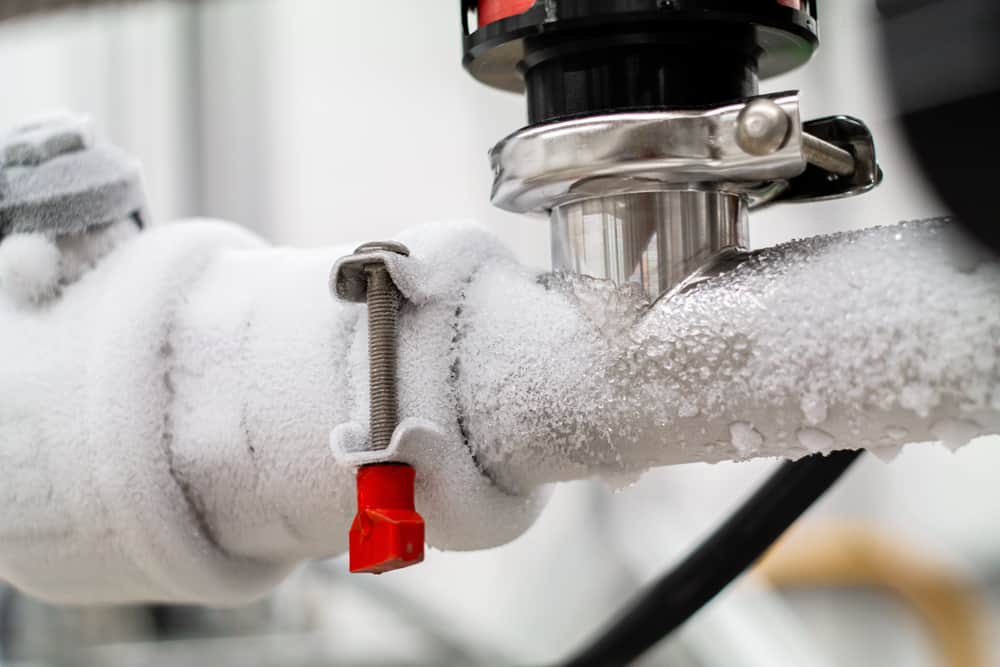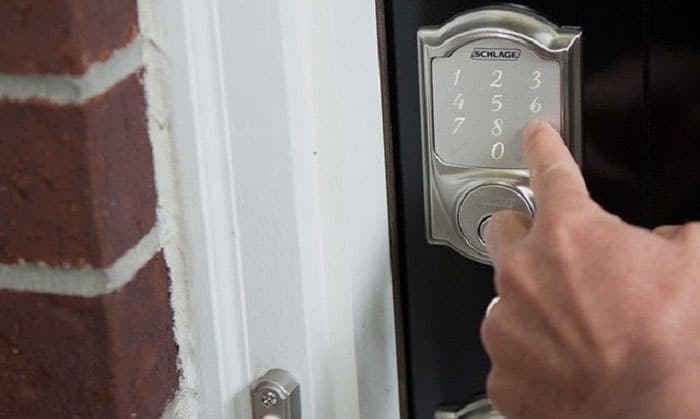If you live in a cold climate, you may be concerned if water softener salt is safe to use on your driveway. Here’s what to know before applying it:
Salt is an abrasive that can damage concrete and corrode metals in cars, so it’s best to use it sparingly and only when absolutely necessary.
It’s not a good long-term solution
Many people rely on water softener salt to melt ice on their driveways, but this isn’t a sustainable solution. If you need an effective way to melt ice quickly and environmentally friendly, consider other methods which are safer for concrete surfaces.
Water softeners don’t actually melt ice, but rather make it harder for it to form. This is because they work by taking away hard water minerals through an ion exchange process that replaces them with softer ones like sodium or potassium.
Water softeners can be costly and require regular upkeep to clean the resin tank and replace beads in the ion exchange bed. If you neglect servicing your softener, salt buildup could occur which impedes water flow through the system.
If your water softener is having issues, it’s best to contact a professional who can take care of the issue for you. After that, other methods for melting ice like rock salt or homemade ice melt mix may work too.
Another issue with salt on a driveway is that it can damage the concrete itself. For instance, it accelerates iron rebar’s oxidation, an ingredient common in many concrete materials. This deterioration could cause premature cracking and deformation of the surface.
Fixing this problem can be costly, and isn’t a long-term solution. Instead, invest in better sealers on your driveway to prevent concrete from absorbing water softener salt and causing damage over time.
When applying salt to your driveway, be sure not to use metal shovels or blades that create small grooves where ice can accumulate and cause costly damage over time.
To guarantee your concrete driveway is safe from salt damage, apply a quality sealer before using it. Only then should you utilize plastic or vinyl shovels to scrape away ice from your driveway.
It’s expensive
Before using water softener salt on your driveway, there are a few things to consider: it’s expensive and not recommended as an long-term solution; in fact, it could even cause irreparable damage over time.
When using brine, make sure you use evaporated salt pellets or rock salt. These salts are of the highest quality and purity, meaning they won’t create buildup in your brine tank.
Though more expensive than regular salt, evaporated salt pellets are typically up to 100% pure and offer better performance than table salt granules.
Water softener salt can be purchased at hardware stores, home improvement centers and some grocery stores. You could also ask your water conditioner servicing company to deliver and reload the salt regularly so that you don’t have to worry about it yourself.
Some people opt to use potassium chloride water softener salt in their systems. Unfortunately, this salt tends to be more costly than sodium chloride and harder to locate; too much could potentially damage your system.
Salt is also hazardous for concrete and asphalt, as it can corrode the surfaces over time and lead to cracking, crumbling, or potholes. The salt also has the potential to harm plants as well.
Furthermore, the chemicals present in water softener salt can be hazardous to pets and children, so you must exercise caution when using it around them.
Ice melt salt is another option to consider for melting ice on your driveway. This type of salt is less corrosive than other varieties and also eco-friendly.
When shopping for a water softener, make sure you invest in an advanced system that offers years of trouble-free performance. Doing so protects your investments and guarantees your softener works at its optimal capacity.
Furthermore, a top-tier water softener will be easier to keep running optimally. Furthermore, it eliminates calcium and magnesium ions from tap water, which reduces hardness and helps shield you against various health conditions.
It’s not safe for concrete
Water softener salt is a type of salt commonly used in residential water softeners to reduce hardness in water by exchanging calcium and magnesium ions through an ion exchange process.
During the ion exchange process, hard water passes through resin beads charged with sodium ions. The negative ions from salt attract positive ions from magnesium and calcium minerals in the water, creating “softened” water that can then be returned to your home for reuse.
However, using salt on your driveway can have serious repercussions. For one thing, it can accelerate rusting of rebar in concrete, which in turn accelerates cracking and subsequent damage requiring costly repairs.
Another issue with salt in concrete is its tendency to cause hygroscopic reaction, leading it to absorb more moisture than usual. This could result in an expanded and cracked structure due to freeze-thaw cycles.
The best way to prevent this problem is by applying a layer of sealant onto your concrete. Sealants work by stopping salt from penetrating the surface and damaging your pavers, plus they help prevent stains from forming on their surface.
Sealers for concrete surfaces come in many varieties, such as epoxy and hydrophobic acrylics. These sealants come in an array of colors and can be applied to existing concrete.
In addition to sealing, you can also use a heated stair mat to keep your steps and other concrete areas warm. These mats are safe for people and pets without damaging the concrete surface.
Finally, you can substitute salt with gravel, wood chips or straw instead of melting ice on your driveway. These alternatives are more cost-effective and less damaging to the concrete surface.
Selecting the ideal deicer for your concrete driveway is essential to its long-term health. Doing the right thing will prevent damage that requires extensive repair work down the line, so if unsure which type of deicer would work best on your surface, speak to a local ice melting expert for advice.
It’s not environmentally friendly
Water softener salt is not recommended for driveway use due to its potential environmental harm and high cost.
Water softeners utilize sodium chloride or potassium chloride to reduce hardness in your water, keeping pipes, fixtures, and appliances free from scale buildup.
Additionally, it works to prevent water from freezing, making it an effective wintertime solution to ice problems. Plus, you can easily find it at a home improvement or grocery store.
Although not the most eco-friendly choice, endothermic dissolution can be a convenient and economical way to melt ice on your driveway. This process works by decreasing the temperature of the ice so that it melts away slowly.
When using water softener salt, it’s essential to make sure you use a high quality product. A subpar product could do more harm than good and could ultimately lead to health issues in the long run.
Water softener salts, particularly sodium chloride, are a popular choice for many homes. Unfortunately, this solution can have serious environmental repercussions.
One major disadvantage of using this salt is its potential chemical reaction with concrete. When calcium chloride in the salt mixes with calcium hydroxide present in concrete, it creates calcium oxychloride – which is highly toxic and can wreak havoc over time.
Therefore, it is essential to only use the amount of salt necessary. Monitor your water softener settings and consult a water quality expert to guarantee you are only using necessary amounts of salt.
It’s essential to avoid pouring salt down your driveway if there are animals in the vicinity, as they could lick and consume it, leading to health issues. Furthermore, water softener salt may damage plants in your yard or garden.

:strip_icc()/guide-on-how-to-choose-the-right-plumbing-pipe-844858_final-8fe8f1cc33724a81aeea74b1c88168bd.png)
